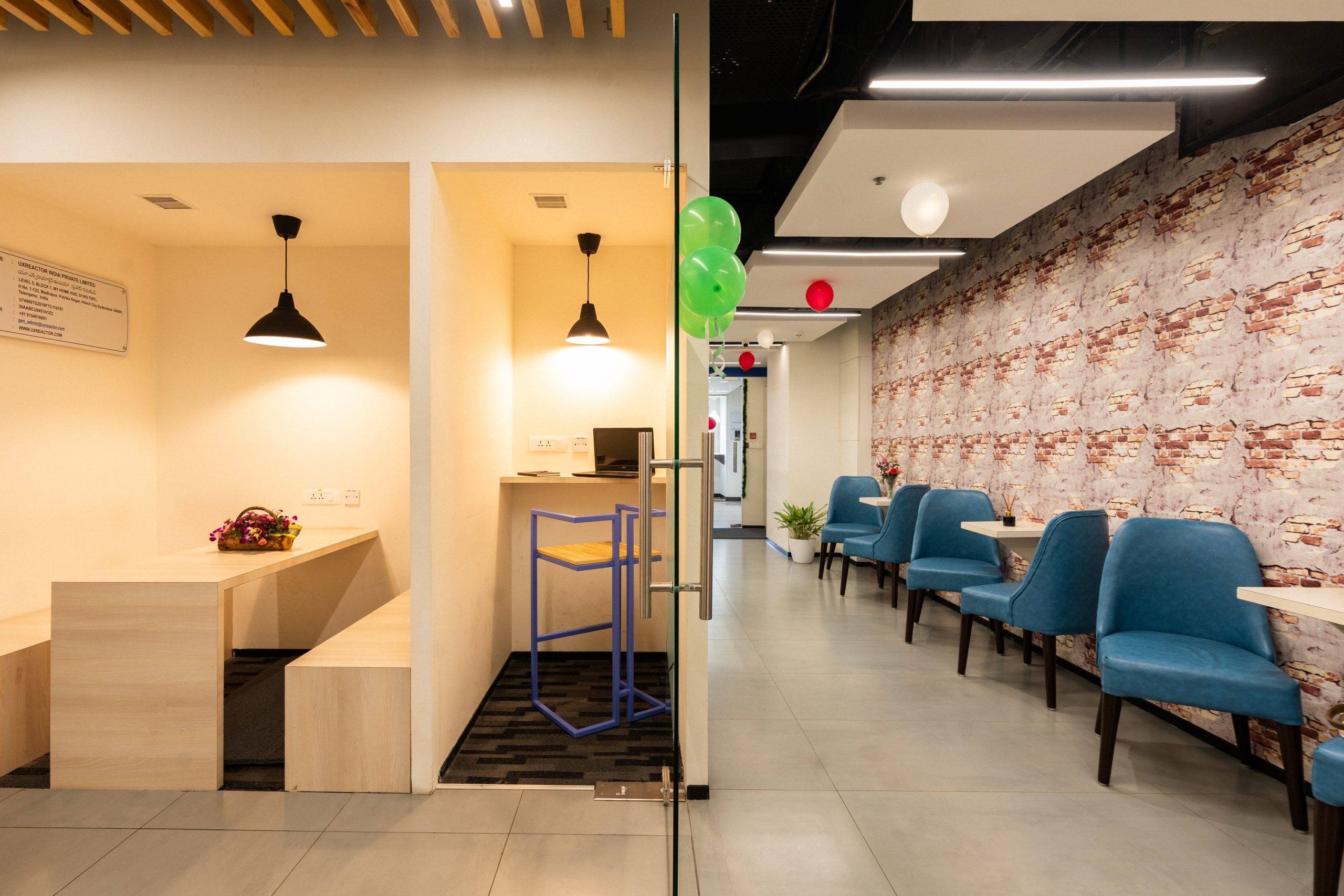
Service office Industry has grown by leaps and bounds in recent years. The serviced office market expanded at an astounding 17.2% compound annual growth rate (CAGR), rising from $23.66 billion in 2023 to $27.74 billion in 2024.
This increase results from customer demand and demonstrates the robustness and stability of the serviced office industry. Government programs, rising investments, the need for professional services, the emergence of sustainable office buildings, and economic expansion into new regions have primarily fueled this growth.
This blog will examine coworking spaces’ revolutionary potential in advancing sustainability. We’ll also stress the importance of energy-efficient lighting, fresh air, biophilic design, and natural light to create a productive and healthy work environment. By utilizing these factors’ potential, businesses can open the door to a more promising and sustainable future for everybody.
Growing Business Operations Trend Toward Sustainability
Several significant factors are expected to impact the serviced office industry. These consist of setting up tech-enabled work areas, flexible and variable leasing contracts, coworking spaces that are reasonably priced, adaptive hybrid work models, and office space rehabilitation and reuse. It will be crucial for organisations to understand these trends in the future years and make the necessary adjustments.
Environmental Benefits of Serviced Offices
Serviced Office space in Hyderabad maximises the use of shared resources, which positively impacts the environment. In contrast to conventional office settings, where individual companies frequently waste energy and resources, serviced offices combine utilities like lighting, heating, and cooling with office equipment.
Because of this consolidation, resources are used more effectively, lowering energy use and leaving a smaller carbon footprint. Custom-designed managed office spaces reduce waste and increase sustainability through resource sharing, making them a more ecologically responsible choice for business centers.
Efficient Resource Management With Shared Resources
Coworking spaces significantly impact the environment because they exemplify the values of community and sharing. Shared office space reduces waste creation and exemplifies the circular economy by offering shared office equipment like meeting rooms, computers, printers, and scanners.
Additionally, these dynamic settings encourage interactions and knowledge exchange among various business owners and entrepreneurs, providing access to contacts in the field, chances for cooperation, and beneficial networking for freelancers and corporations. Flex spaces encourage sharing, community, and collaboration, offering a creative and sustainable approach to work and business.
Supporting Sustainable Business Practice and Participation
In addition to the measures taken by the coworking spaces, members play a crucial role in promoting eco-friendly behaviours. People can increase their positive environmental impact by actively encouraging sustainable practices like energy conservation, trash reduction, and eco-friendly materials.
In addition, joint initiatives among coworking members, such as recycling programs and sustainability education seminars, support the goal of a more environmentally friendly workplace. Plug-and-play office spaces are essential for companies and individuals looking for ecologically responsible workplaces that value sustainability. By working together, members of coworking spaces can make a substantial contribution to a more sustainable future.
Health & Well-Being Benefits
Natural Lighting
Natural lighting elevates mood and productivity and is critical to coworking spaces, prioritizing health and well-being.
Energy-Efficient Lighting
Energy-efficient lighting makes the workspace more comfortable by lowering eye strain.
Biophilic Designs
Living walls and green areas are examples of biophilic design, which links people with the natural world and encourages concentration and relaxation.
Improved Air Quality
Better air quality using sophisticated ventilation systems improves general health and cognitive performance.
Collaborative workspaces instead of traditional workspaces
They are revolutionizing traditional work environments because collaborative workspaces may foster creativity, innovation, and productivity. Members are encouraged to interact, brainstorm, and share expertise in open plans, shared desks, and communal areas. Group hubs replace individual workstations and promote learning, creativity, and problem-solving.
Collaborative workspaces help create an inclusive culture and dissolve hierarchical barriers by encouraging adaptability, flexibility, and a feeling of community. Instead of utilizing typical cubicles, employees can openly share ideas, motivate one another, and encourage team achievement in shared spaces.
Conclusion
Demand for eco-friendly office spaces is rising as India moves closer to a sustainable future. By 2030, over 83% of occupiers hope to have 100% of their portfolios certified green. However, selecting a sustainable solution is critical because significant markets like Delhi and Mumbai are expected to have a supply-demand mismatch of up to 55%, according to a JLL India study.
The innovative and collaborative work atmosphere at iKeva’s serviced office encourages your company’s expansion while positively impacting the environment. By choosing iKeva, you’ll participate in a movement that encourages equality and sustainability while fostering creativity, productivity, and community. Make iKeva’s serviced office your go-to workplace and join the sustainable movement.
Serviced offices do possess a reputation of being suitable only for the small businesses and freelancers but in the recent…
Coworking spaces are a welcome relief from the isolation of working from home or from the loudness of a café…
The employment landscape has seen tremendous change in recent years. Traditional office setups are being challenged by the rise of…